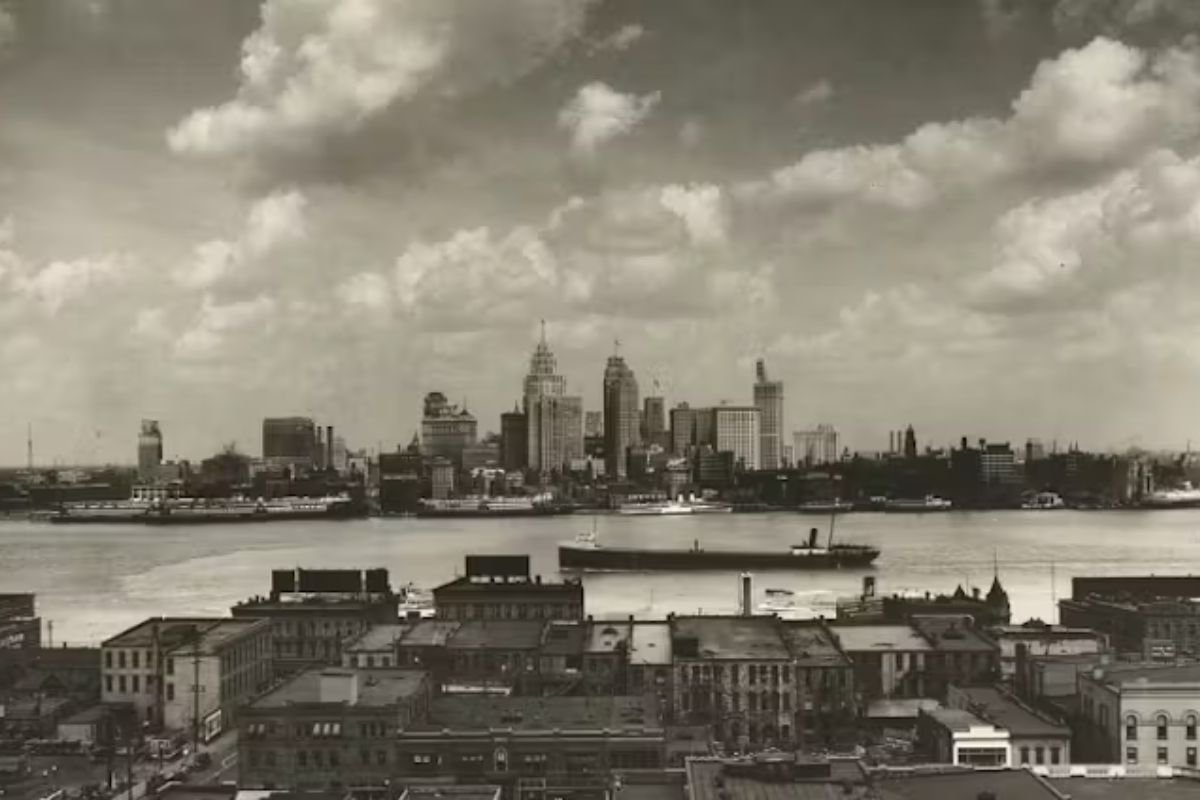
This interview has been edited for length and clarity.
Could you talk a little bit about the political background and state of the Left in the 1970s and how In These Times emerged from this political moment?
The simplified answer to this question is that in the mid-1970s—after Watergate, the Vietnam War, and other fundamental lies told to the American people—you had kind of the highest level of distrust of government and institutions. After the Civil Rights and anti-war movements, there were two different impulses on the American Left. One was the continuation of a revolutionary idea: the idea that we were in a prerevolutionary moment, and that that revolution could be sparked at any time. The other was really trying to grapple with the forces of reaction, and how to rebuild organizations that had been destroyed and damaged coming out of that era—the New American Movement, the Democratic Socialist Organizing Committee. I think there was also a continued attempt to think about radical and revolutionary third-world struggles, but most of the work was developing what we think of as modern American democratic socialism.
During this time, a crew of writers and editors moved from the San Francisco Bay Area to Chicago, where organizing veterans from different political persuasions were located. It was seen as a place where there could be a linkage between the Labor movement and other coalitions. It’s not an accident, for example, that Jesse Jackson’s Rainbow Coalition and the Black National Political Convention were formed in the Midwest in the 1970s. It was a very formative moment, and there was a lot of ferment and room to broaden out the definition of the Left.
I do think there are a lot of similarities today. As far as our own moment of distrust, we’re sitting here almost 20 years after the Iraq war started. It’s been a longer lead from the conditions that have seeded this moment, but there’s a lot of parallels in what’s happening inside the Left. While we’re talking, it looks like Shawn Fain is very likely to be elected president of the United Auto Workers1 in the first contested election in almost 80 years. There is a nascent democratic movement inside the Teamsters, the UFCW, and other unions. And obviously, the global pandemic is a fulcrum that is helping to create a lot of confusion, chaos, and possibilities.
In These Times covers both the relationships between social movements and progressive electoralism as well as investigations of corporate and political power. Why are these key areas for journalism coverage today?
Historically, movements have not been able to mature or exercise power without media of their own that can help inform and challenge them, and that allows them to strategize and create analysis. Conversely, good investigative journalism does not just expose the bad actions of corporations, it can unmask existing power structures and tell a bigger story about politics. I think that these two impulses in concert represent really clear paths toward an objective for Left media. Our job is not just to inform people, we’re not trying to be an “unbiased” source of information. We’re trying to be part of a political project that creates social, economic, and political transformation. To do that, we’ve got to be able to dive deeply into some of the contradictions, to be both a trusted source of information for those engaged in movements and a source of critical analysis of the movements themselves.
Could you talk a bit about some of the key projects that In These Times has taken on or is planning? What does the publication see as its major area of intervention in the media landscape? How has it responded to recent political transformations, like the 2020 uprisings for racial justice, the pandemic, and skyrocketing inequality?
For almost 50 years, the center of In These Times has been coverage of the labor movement and worker movements in general. It has gone through different generations of engaging with the Labor movement, sometimes as a constructive critic, sometimes as a tool for expanding the reach of certain forms of organizing. Unions and organized workers are a place of enormous leverage. There’s a way to think about labor, work, and the economy not as the central issue, but as a point of intersection. The heart of it is, how do different oppressions, movements, or other forces impact people in their day-to-day, when they are making a living, taking care of their families, and doing the things that consume most of their time?
In terms of current political transformation, I don’t think that organizing can happen in the same way without the 2020 uprisings, and our challenge is to find out how to help different movements constructively engage with each other. In the years since, we did a very successful Movement for Black Lives takeover issue, and we’ve covered organizing at Amazon and the Amazon Labor Union as an extension of the energies driving the protests and racial justice organizing. I think these move us a step forward in thinking how we engage and connect these fights, whether movements for racial justice, reproductive justice, or labor rights. These are all-encompassing issues, and we must figure out how to clarify them.
Could you talk a little bit about your background in organizing? How have your experiences in labor and progressive movements led you to become the director of a media organization?
My whole organizing career has been about finding different approaches to building a majoritarian political project that can liberate people and allow them to enjoy the fruits of their own labor. A lot of the work I’ve done over the last 10 years has been, in the simplest sense, about coalition building and movement alignment. In 2001, I worked as a community organizer in New York City with the New York Association of Community Organizations for Reform Now (ACORN), which was the first year that the Working Families Party was active in New York City, and after which there was explosive union growth and possibility. I was in the right place at the right time, and willing to learn and take in information.
I was also one of the founding members of United Working Families, which is an independent organization based here in Chicago that was started in 2014 by my former union SEIU Healthcare–Illinois and Indiana, the Chicago Teachers Union, and community-based organizations such as Grassroots Illinois Action and Action Now. The idea behind UWF was that we had to build independent political power to create transformational change. Right now, a founding member of UWF, Brandon Johnson, is in the runoff for Chicago mayor, which is not something I imagined would be possible within 10 years of the organization’s existence.2
This position is no different, in that I think the perspective I am bringing to media is thinking about it as an organizer. How are we going to expand our reach, how are we going to expand not only power for ourselves and the collective projects we serve?
To create a powerful media, we need to tell untold stories, interpret the status quo, and strategically popularize our own narratives of power.
Media is in a severe ownership crisis. What are the major issues in the sector as you see them, and what challenges and opportunities do independent outlets like In These Times face at the moment?
Sign up for our free newsletters
Subscribe to NPQ's newsletters to have our top stories delivered directly to your inbox.
By signing up, you agree to our privacy policy and terms of use, and to receive messages from NPQ and our partners.
Mainstream media in the US has not recovered from its consolidation into three networks and the burst of options that have erupted in the aftermath. We can talk about the golden age of the newspaper, and various mouthpieces in metros, and the competition amongst various segments of the ruling class. The recent wave of layoffs shows that the corporate media has a weak hold on controlling the biggest ways of delivering information.
Our job is to take up the space that’s being abdicated by corporate media, which continually pivots to meet the demands of market innovations in late capitalism. Right now, it’s private-equity ownership. Ten years ago, it was something different. My entire life, media has been dying. It won’t die, and it won’t do it until we’re able to replace it with something else. That’s the task of not any one publication, but of the Left more broadly, to replace those institutions with ones that can better speak to our majorities. It won’t be Walter Cronkite on the nightly news, but it will be a new kind of hegemony.
To create a powerful media, we need to tell untold stories, interpret the status quo, and strategically popularize our own narratives of power.
What is the relationship between building strong progressive movements against right-wing authoritarianism and neoliberal capitalism and having a strong independent media sector? What do movements need from the media, and vice versa?
It’s kind of a truism that liberalism is not enough, that attempting to purely unmask hypocrisy or meet people in a reasonable middle are misled goals at a time when the center of gravity is so far to the right and has such a strong pull. Any movement that doesn’t have its own proactive program will get pulled in that direction, not because of the ill intentions of any individuals, but because the moment requires sharply staking out space.
That’s what I think movements need from media. I don’t think movements need a megaphone, but a willing partner to be both supportive and critical of what’s working and what’s missing. We don’t need to match right-wing projects like Breitbart or Fox News. But the Right has strategically found and fed ideas like critical race theory to its media, and that has paid real dividends. We need a different relationship between progressive media and the movements that it reflects and analyzes.
Progressive movements operate on a terrain that involves many struggles. What are the possibilities and challenges for representing the uneven and contradictory character of these struggles? How do we create media to meet this challenge and reach a broader audience, from grassroots organizers to legislators to everyday working people?
We are always trying to strike that balance at In These Times. In the past few months, we’ve put out some stories that have both been very popular on our site and also useful to organizers. One was about a high school in Iowa using restorative-justice practices and reducing the dependence on school police. Another was focused on horrible working conditions at a food warehouse in the southwest suburbs of Chicago. Both stories reached a big audience and were used by local organizers, who used the story as succinct proof with which to lobby state legislators.
There is a real sweet spot in speaking to a broader audience while creating something that is of real utility to a smaller audience. In These Times has been very good in making these connections, but I think that’s always something that we can work on going forward. How do the people working for the magazine understand what is going on in the world? How do they translate that for a bigger audience? How does their work shape or serve political activity? One of the places where I think that balance has worked is in coverage of the official labor movement, the reform movements inside it, its shortcomings and opportunities. I think that’s a needle to thread in media.
What are you hoping to bring to the role of ED, and how are you hoping to help the institution keep thriving?
I’m taking over for Joel Bleifuss, who was the editor and publisher at In These Times for over 25 years and ran this magazine through really challenging times. The world has changed so many times in the past quarter century, and it’s remarkable to think about leading the publication from Bill Clinton’s second term, through the rising global justice movement and the formation of a new Left after 9/11 and the Iraq War, through the Obama presidency and the 2008 economic crisis, through Occupy Wall Street and the Chicago Teachers Union strike and the Bernie Sanders campaign. The Left and its movements have shifted through all of these dislocations and changes. The 1970s, when the magazine began, was also the birth of neoliberalism. We’re seeing its terrifying death now, and we’re not sure what’s going to replace it. There’s not only unrest, but a new world being born around us.
As an organizer, what I hope to bring to the leadership role at In These Times is a sense of hope. I think about some of my experiences as a union organizer, talking to workers who were so discouraged and faced with difficult circumstances. But there were little glimmers of possibility—something I used to say when training organizers was that you might be the first person to ask a worker what they did during the day and how they felt about it, and that this was a serious responsibility. We had to figure out how to put one foot in front of the other, to build something, to be open to opportunities for bigger changes. My hope is to continue to cultivate a larger audience, to be more useful to those who are trying to build and create a better world, and to put some infrastructure in place that allows us to tell the stories we need to tell.
Notes
- As of March 26, 2023, Shawn Fain was elected as president of the United Auto Workers.
- As of April 4, 2023, Brandon Johnson was elected as Chicago’s next mayor.










